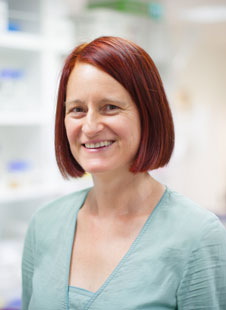 Friday 6 May 2016 10:36am
Friday 6 May 2016 10:36am
Dr Anitra Carr
A Christchurch researcher is doing New Zealand's first study of vitamin C's potential as a treatment for intensive care patients with sepsis.
Dr Anitra Carr is doing the clinically-relevant work with support from the Health Research Council (HRC). She was recently awarded a $500,000 Sir Charles Hercus Health Research Fellowship for promising emerging researchers.
Dr Carr works at the University of Otago's Christchurch health campus with its Centre for Free Radical Research.
She says sepsis is the main cause of death in intensive care patients. Rates are increasing and treatment options for the life-threatening condition are limited. Patients with severe sepsis often develop cardiac dysfunction and dangerously low blood pressure (known as septic shock) and are given drugs to stabilize their cardiovascular function.
Dr Carr's hypothesis is that cardiac dysfunction, and resulting drug treatments, could be avoided if patients had appropriate vitamin C levels. When sepsis patients experience cardiac problems, they are often given drugs to stimulate the cardiovascular system. Dr Carr says vitamin C is potentially involved in a similar natural process, and if levels were high enough patients might not need as much medication.
Dr Carr will carry out a clinical trial in Christchurch where people with sepsis are given the vitamin to see if this intervention results in a better recovery or survival. She will be trying to find out whether the positive biological effects of vitamin C translate into an improvement in patient outcome, which has been reported in a smaller study overseas. Her study will also involve comparing vitamin C levels with severity of illness and whether this contributes to progression of sepsis.”
HRC Chief Executive Professor Kath McPherson says the Sir Charles Hercus fellowship is a really important opportunity for New Zealand's up-and-coming scientists to consolidate their research career, and “we're delighted to be able to support Anitra in this way.”
Dr Carr says she is very grateful to the HRC for the funding that will allow her to carry out clinical research that will have a positive impact on the outcomes of critically ill people and potentially even save lives.
A list of Otago experts available for media comment is available elsewhere on this website.
Electronic addresses (including email accounts, instant messaging services, or telephone accounts) published on this page are for the sole purpose of contact with the individuals concerned, in their capacity as officers, employees or students of the University of Otago, or their respective organisation. Publication of any such electronic address is not to be taken as consent to receive unsolicited commercial electronic messages by the address holder.